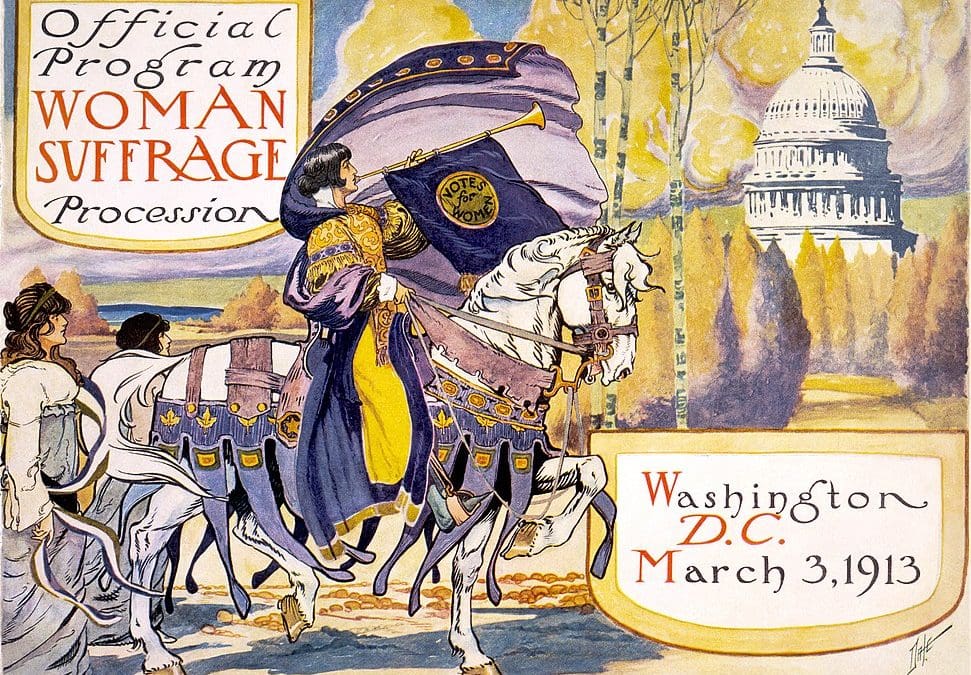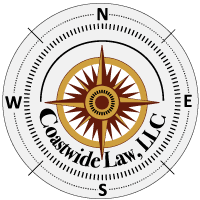A historical celebration of those who fought for women’s equality
“There never will be complete equality until women themselves help to make laws and elect lawmakers.” –Susan B. Anthony, 1897
Anthony was right! Although it wasn’t until 1920 (when women gained the right to vote with the ratification of the 19th Amendment to the U.S. Constitution) that the pace toward women’s equality gained momentum.
Women have come a long way in the past hundred years. So, this March, in recognition of Women’s History Month, we celebrate women’s liberation by remembering the accomplishments of some of history’s most dedicated and resilient women.
Susan B. Anthony, standing, and Elizabeth Cady Stanton photographed sometime between 1880 and 1902. Photo: Library of Congress.
Elizabeth Cady Stanton (1815-1902)
Stanton co-founded the National Woman Suffrage Association in 1869 with Susan B. Anthony and became the organization’s first president.
Outspoken, Stanton went before the New York State legislature in 1855, where she argued for the expansion of the Married Woman’s Property Law. Along with Anthony, Stanton started The Revolution, a newspaper on women’s rights. She co-authored the History of Women’s Suffrage, 1881-1886.
Then, in 1895, she published The Woman’s Bible critiquing Biblical passages that supported the subordination of women. Stanton was the author of the 19th Amendment and organized the International Council of Women in Washington D.C.
Susan B. Anthony (1820-1906)
Co-founder of the National Woman Suffrage Association, Ms. Anthony dedicated much of her life to the women’s movement. She campaigned for women’s suffrage (the right to vote), property rights for married women, and equal wages for female teachers.
In 1868, Anthony organized the Working Women’s Association in her campaign to gain better working conditions and fair pay for women. She published The Revolution (a weekly women’s rights newspaper) from 1868 to 1870. She also took part in drafting a proposal on which the Nineteenth Amendment was later based, as well as co-authored History of Woman Suffrage, 1881 to 1886, a multi-volume book.
In 1904, she founded the International Woman Suffrage Alliance in Berlin and also organized the International Council of Women.

Margaret Sanger. Photo: Library of Congress.
Margaret Sanger (1879-1966)
A nurse, Margaret Sanger founded the National Birth Control League in 1917 that would later become Planned Parenthood Federation of America.
Sanger’s commitment toward birth control and reproductive freedom for all women was a result of the horrifying images of death and deformity, caused by self-induced abortions, that she had witnessed.
In 1916, she opened the first birth-control clinic in the U.S., in Brooklyn, and was briefly sent to prison.

Alice Paul raises a glass in front of the ratification banner, August 26, 1920. Photo: National Woman’s Party Collection.
Alice Paul (1885-1977)
Paul organized a suffrage parade in Washington D.C. in 1913, on the day of Woodrow Wilson’s inauguration, which helped the women’s movement to unite.
Four years later, she was jailed during picketing of the White House along with nearly 100 other suffragists. They were charged with “obstructing traffic.” Most of the women were with the National Woman’s Party that Paul had recently founded. Her group also held a hunger strike that year and had to be force-fed.
Paul worked unstoppably toward the passage of the Nineteenth Amendment and the Equal Rights Amendment. In 1938, she founded the World Woman’s Party.

Betty G. Friedan in 1960.
Betty G. Friedan (1921-2006)
Friedan wrote The Feminine Mystique in 1963, which began the contemporary women’s movement in Britain and the United States. Her book was a challenge to long-held attitudes that a woman’s place was in the home.
In 1966, she founded the National Organization for Women; in 1971, the National Women’s Political Caucus; and then, in 1973, the First Women’s Bank. Friedan was also an organizer of the 1970 Women’s Strike for Equality.
She later authored It Changed My Life (1976), and The Second Stage (1981), both related to the women’s movement.
 Kimberly Blaker is a freelance writer. She’s also founder and director of KB Creative Digital Services, an internet marketing agency, at kbcreativedigital.com.
Kimberly Blaker is a freelance writer. She’s also founder and director of KB Creative Digital Services, an internet marketing agency, at kbcreativedigital.com.


